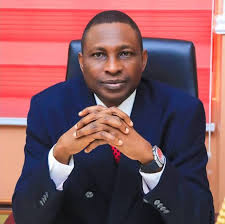Ola Olukoyede, the Executive Chairman of the Economic and Financial Crimes Commission (EFCC), revealed that the commission only recovers less than 20 percent of the stolen public funds in the country. He also mentioned that the cost of recovery is 25 percent of the recovered funds.

Olukoyede emphasized the importance of preventing the theft of public funds during his acceptance of the “Man of Valour” Award from the Global Peace Movement International (GPMI), an organization present in 27 countries, on Wednesday, July 3.
Expressing his concern over the widespread corruption, Olukoyede vowed not to let Nigerians down and to take a firm stand against corrupt individuals. He illustrated the difficulty of their task by saying, “For every N10 the EFCC recovers, more than N50 has been stolen, and recovering that N10 costs about N2.50.”
Recently, Olukoyede questioned how the country was surviving despite the vast sums stolen by public officials. He reiterated his administration’s dedication to preventing corruption by establishing a Fraud Risk Assessment and Control (FRAC) directorate. This directorate monitors real-time budget implementation within Ministries, Departments, and Agencies (MDAs) to track funds as they are released.
Olukoyede dedicated his award to the EFCC, thanking the GPMI on behalf of the commission’s management and staff. He recognized everyone supporting the EFCC as fighters against corruption.
He acknowledged the political support from President Bola Tinubu, who has given the EFCC the freedom to operate without interference. Olukoyede stressed the need for collective effort to ensure good governance.
Under his leadership, Olukoyede promised that no economic or financial crime would go unaddressed. He explained that minor crimes could escalate if not dealt with, as some high-level offenders started by committing smaller thefts in local governments and schools.
Discussing the impact of internet crimes, Olukoyede noted that several international companies had to leave Nigeria due to local wire fraud, which led to a loss of over $500 million in 2022 alone. The activities of cybercriminals have also damaged Nigeria’s credit rating, limiting the availability of credit cards and affecting international transactions.
Olukoyede called on all Nigerians to join the fight against economic and financial crimes for the country’s benefit.




